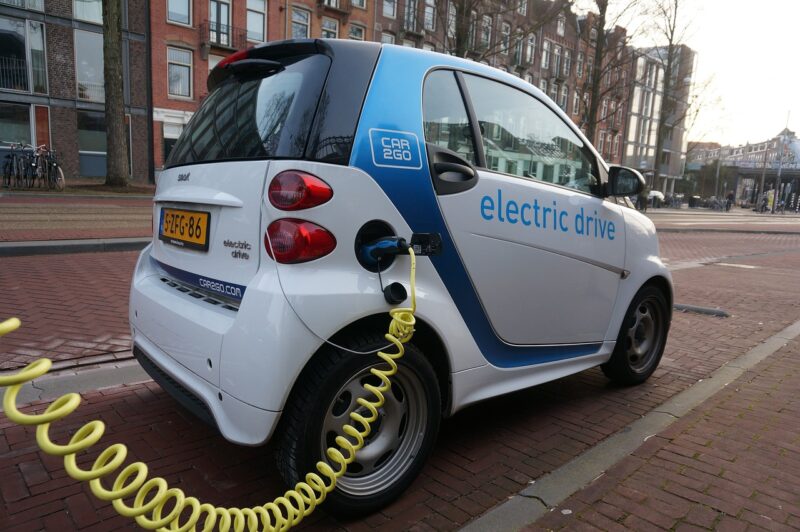How Tesla Is Leading the Electric Car Revolution and Changing the Auto Industry
November 14, 2024

The automotive industry is undergoing a significant transformation, driven primarily by the shift toward electric vehicles (EVs). At the forefront of this revolution is Tesla, Inc., an American electric vehicle and clean energy company founded in 2003. Tesla is not just a car manufacturer – it is a game changer that has redefined the industry’s landscape in numerous ways. In this article, we will explore how Tesla is leading the electric car revolution, the technology behind its success, and the impact it has made on the wider auto industry.
—
1. The Visionary Beginning: A New Era for Automobiles
Elon Musk, Tesla’s CEO, envisioned a future where electric cars would be at the heart of sustainable transportation. Early on, Tesla aimed to challenge the preconceived notions about EVs being slow, unappealing, and limited in range. The company made it its mission to prove that electric vehicles could be desirable, efficient, and environmentally friendly.
1.1 The Roadster: A Game Changer
Tesla’s first vehicle, the Tesla Roadster, was launched in 2008 and changed the game for electric cars. The Roadster was the first highway-legal electric vehicle to use lithium-ion battery cells, allowing it to achieve remarkable performance. It could go from 0 to 60 mph in under four seconds, showcasing that electric cars can be fast and fun to drive.
—
2. Innovative Technology: The Core of Tesla’s Success
One of the key elements behind Tesla’s leadership in the electric car revolution is its commitment to innovation and technological advancement. Tesla has integrated several cutting-edge technologies into its vehicles that set it apart from traditional automakers.
2.1 Battery Technology
Tesla has invested heavily in battery technology, which is critical for the performance and range of EVs. The company manufactures high-capacity battery packs, allowing its vehicles to travel substantial distances on a single charge. Tesla’s Gigafactories play a crucial role by scaling up battery production to meet growing demand while reducing costs.
2.2 Autopilot and Full Self-Driving
Tesla’s commitment to autonomous driving technology has placed it ahead of its competitors. The Autopilot feature is equipped with advanced sensors and AI algorithms that enable self-driving capabilities. While full autonomy is still a work in progress, Tesla continuously updates its software via over-the-air updates, enhancing the cars’ performance and the driving experience.
—
3. Disrupting the Automotive Industry Model
Tesla has revolutionized the conventional automotive business model in several ways.
3.1 Direct Sales Model
Unlike traditional car manufacturers, Tesla employs a direct sales model where customers can purchase vehicles through its website. This eliminates the need for third-party dealerships, allowing for greater control over the sales process and customer experience.
3.2 Over-the-Air Updates
Tesla vehicles receive regular over-the-air updates that add new features and improve performance without requiring a visit to a dealership. This practice enhances vehicle longevity and customer satisfaction, as owners benefit from continuous improvements.
—
4. Sustainable Energy: Beyond Vehicles
While Tesla is primarily known for its EVs, it also aims to promote renewable energy solutions to complement its cars. This broader vision is exemplified by its development of solar products and energy storage solutions, which help to create a sustainable ecosystem.
4.1 The Tesla Powerwall
The Tesla Powerwall is a home battery system that stores energy, allowing homeowners to use solar power when the sun isn’t shining. This system not only promotes sustainable energy consumption but also lowers electric bills.
4.2 Solar Energy Solutions
Tesla’s acquisition of SolarCity in 2016 enabled it to offer integrated solar energy products, including solar panels and solar roofs. This approach aims to create a seamless transition to sustainable living by combining solar energy with electric vehicle charging.
—
5. The Market Impact: Shaping the Future of Transportation
Tesla’s influence on the automotive industry extends beyond its innovative products; it has sparked a widespread shift toward electric vehicles among traditional automakers.
5.1 The Surge in EV Development
Many automotive companies have accelerated their electric vehicle development in response to Tesla’s success. Major manufacturers such as Ford, GM, and Volkswagen have announced ambitious EV plans, indicating a significant shift in the market.
5.2 Changing Consumer Perceptions
Tesla has played a crucial role in changing consumer perceptions of electric vehicles. Once viewed as niche products, EVs are now considered viable alternatives to traditional gasoline-powered vehicles, leading to increasing demand and acceptance worldwide.
—
6. Challenges Ahead: The Road to Mass Adoption
Despite its success, Tesla faces challenges on its path to continued growth and the mass adoption of electric vehicles. Issues such as supply chain constraints, regulatory hurdles, and increasing competition from both established automakers and new entrants could impact Tesla’s future.
6.1 Overcoming Supply Chain Issues
As demand for EVs continues to rise, Tesla must navigate supply chain complexities to source materials for batteries and vehicle production while maintaining quality and efficiency.
6.2 Competition in the EV Market
With traditional automakers ramping up EV production, Tesla will encounter fierce competition in an increasingly crowded market. To maintain its leadership, Tesla must continue to innovate and exceed consumer expectations.
—
Conclusion
Tesla’s innovative spirit, commitment to sustainable energy, and disruptive business model have positioned it as a leader in the electric car revolution. As the company continues to expand its product offerings and influence the global automotive landscape, it remains to be seen how other automakers and consumers will adapt to this rapidly changing environment. Nevertheless, what is clear is that Tesla is not merely a car manufacturer; it is a beacon of what the future of transportation can and should be.
—
By embracing electric vehicles, innovative technology, and sustainable practices, Tesla is changing the course of the automotive industry and paving the way for a greener future.






